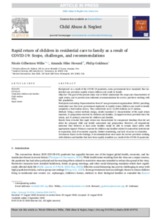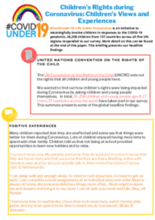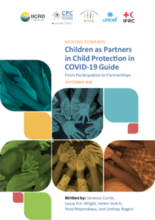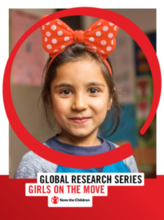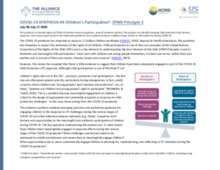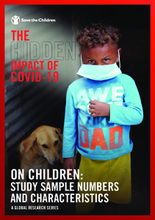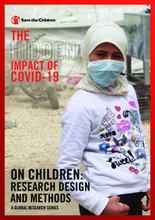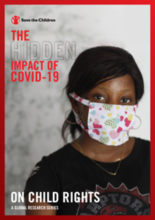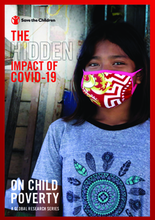Displaying 1261 - 1270 of 4424
The goal of the present study was to better understand the scope and characteristics of rapid return, and to provide data-informed recommendations for service providers working with this population.
This resource is designed to help professionals and carers understand the latest neuroscience research on childhood abuse and neglect, with insights and advice from clinicians, teachers, and social workers on how to put your learning into practice.
This briefing presents the headline findings from a survey conducted by #CovidUnder19: Life Under Coronavirus, an initiative to meaningfully involve children in responses to the COVID-19 pandemic.
How is it best for adult-led organizations to reach out to children? Who should do so, and how can they do so safely? This guide provides some guidance on those questions and links to additional resources.
The Girls on the Move Initiative is a global series of action research that puts girls at the centre. It has been conducted across different regions within existing Save the Children programmes. Each regional study generates targeted evidence to address knowledge gaps in current literature and programme approaches, and engages Save the Children teams to immediately strengthen ongoing interventions for girls in different stages of migration, notably during transit and arrival.
This evidence synthesis analyses emerging practices and preliminary guidance for engaging children in the response to child protection (CP) challenges during the various stages of COVID-19 and other infectious disease outbreaks (e.g. Ebola).
This report presents the global COVID-19 research series design and methods.
This report is one in a series presenting findings from the Global COVID-19 Research Study. The results presented in this report focus on implications for Child Rights.
This report is one in a series presenting findings from the Global COVID-19 Research Study. The results presented in this report focus on implications for child poverty.

